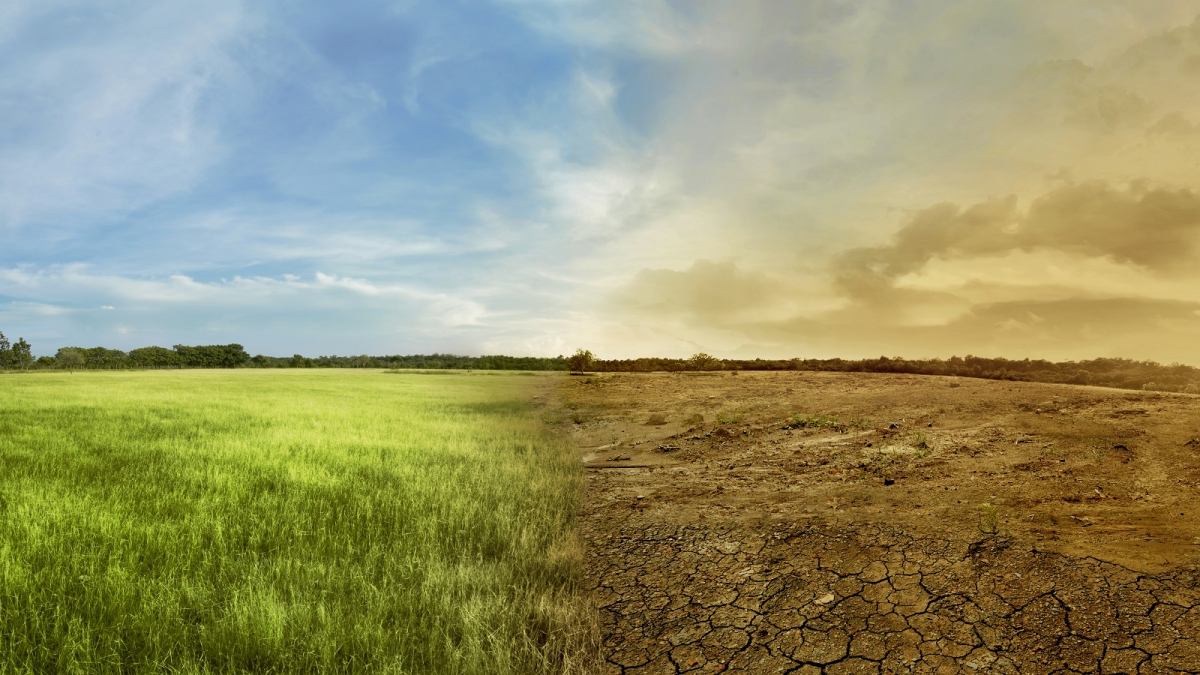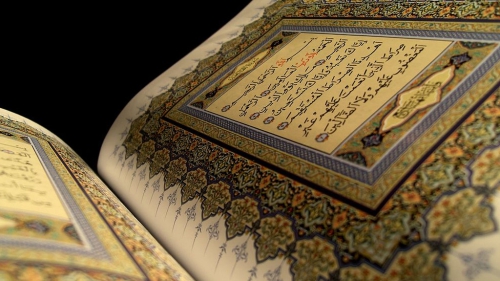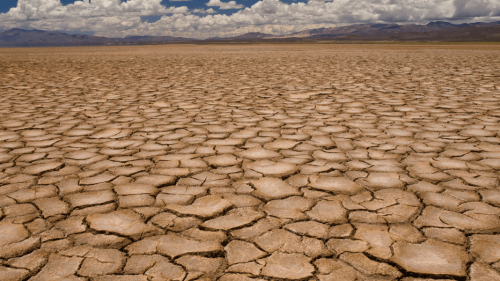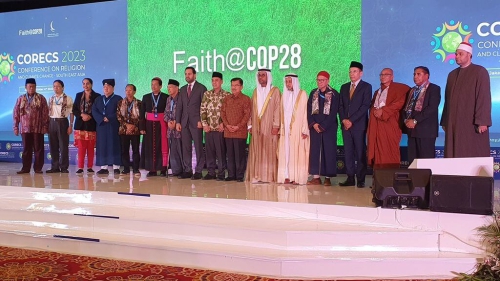Climate Change and Consciousness Shift

Climate change: It feels like the approaching End Times.
But it’s the secular version thereof, which means that humanity is responsible for both its cause and — if possible — its transcendence. All we need to do is change everything about the way the high-tech, global society functions in the next dozen years, in the process countermanding a political structure completely committed to (and profiting from) the status quo that’s creating the problem in the first place.
And modestly complicating the scenario is the fact that there’s no universal agreement on the changes that are necessary to maintain Planet Earth in a livable state, for humans and most other life forms. Are the necessary changes technical? Are they political? Are they corporate? Are the billionaires the ones responsible or are ordinary people, as they heat their houses, drive to work and stare into their cellphones, also participants in the looming crisis?
There is a climate change movement growing, led by the upcoming generation — the ones whose future may be stolen. Do I have a right to feel hope in this movement, or is hope of any sort merely a cruel illusion and the punchline of dystopian humor?
I fear these questions are the unspoken preamble contextualizing every attempt to address climate change. Certainly they are for me, in all my helpless ordinariness and non-expertise. The life I lead is woven into the problem, even if I also shake my fist at it and demand real change. But all this said, I still feel the need to set my life aside for the moment and look at the melting polar ice, the rising temperatures across the planet, the horrific fires and ongoing deforestation, the increasing intensity of tropical storms, the displacement of the planet’s poorest people, the insanity of ongoing wars and the cowardly refusal of most political leaders to address or even acknowledge any of this.
Is there some way to embrace a hope for change — for survival — that doesn’t dismiss (or worse, simplify) the difficulty we face? How can I be a participant in both the matter at hand and its transcendence? This may be a place to start:
“Our world is in crisis. Life itself is under threat. Yet every crisis contains the possibility of transformation.”
This is part of the vision of the Extinction Rebellion, which is calling for an international rebellion against climate change. I repeat these words: “the possibility of transformation . . .” This is bigger than protest. This is bigger than wind farms and solar panels. This involves every last one of us, and not simply as donors making financial contributions to the cause. Transformation means a collective shift in consciousness, or what I call participatory evolution.
The vision continues:
“We hear history calling to us from the future. We catch glimpses of a new world of love, respect and regeneration, where we have restored the intricate web of all life. It’s a future that’s inside us all — located in the fierce love we carry for our children, in our urge to help a stranger in distress, in our wish to forgive, even when that seems too much to ask.
“And so we rebel for this, calling in joy, creativity and beauty. We rise in the name of truth and withdraw our consent for ecocide, oppression and patriarchy. We rise up for a world where power is shared for regeneration, repair, respect and reconciliation. We rise for love in its ultimate wisdom. Our vision stretches beyond our own lifespan, to a horizon dedicated to future generations and the restoration of our planet’s integrity.
“. . . It is a rebellion against the heartless, loveless and lifeless delusion of seeing Earth as dead matter. . . .”
These are words that make we want to kneel. They also make me want to dance, cry — and stumble, as best I can, for a way to find holistic participation in this possibility of transformation. How does consciousness shift occur? I think it occurs millions, or perhaps billions, of places at once: in large, media-saturated movements all over the planet and in quiet, personal epiphanies.
The planet is alive. Hope begins here.
Some years ago, I quoted these words of awareness of the Arhuaco people of northern Columbia: “When you go to dig your fields, or make a pot from clay, you are disturbing the balance of things. When you walk, you are moving the air, breathing it in and out. Therefore you must make payments.”
As you walk, you disturb the balance of things, so walk softly — live your life softly — with awareness and gratitude. What if this is what we were taught as we grew up? Perhaps as humanity grows up, this is what it must teach itself.
I think maybe this is what Don Fitz was getting at when he challenged “the myth of clean energy” as the path beyond climate change, making the point that it is by no means carbon neutral. All alternative energy sources, he writes, “require machinery that is heavily dependent on fossil fuels. Steel, cement and plastics are central to “renewable” energy and have heavy carbon footprints. One small example: The mass of an industrial wind turbine is 90% steel.”
He concludes: “There can be good lives for all people if we abandon the goal of infinite energy growth. Our guiding principle needs to be that the only form of truly clean energy is less energy.”
Another way of saying this is there are things that matter more than infinite growth and control over the planet. One of these is awareness —not merely of the complexity of nature and the complexity of being human, but of our connection to the planet and to one another. Perhaps it takes a climate crisis to get us to understand that our home is the whole planet and we’re all in this as one.
This is the possibility of transformation. We’ll either live together or we’ll die together.
*****
Robert Koehler is an award-winning, Chicago-based journalist and nationally syndicated writer. His book, Courage Grows Strong at the Wound is available. Contact him at koehlercw@gmail.com or visit his website at commonwonders.com.
© 2019 TRIBUNE CONTENT AGENCY, INC.
Copyright © 2019 Common Wonders, All rights reserved

















